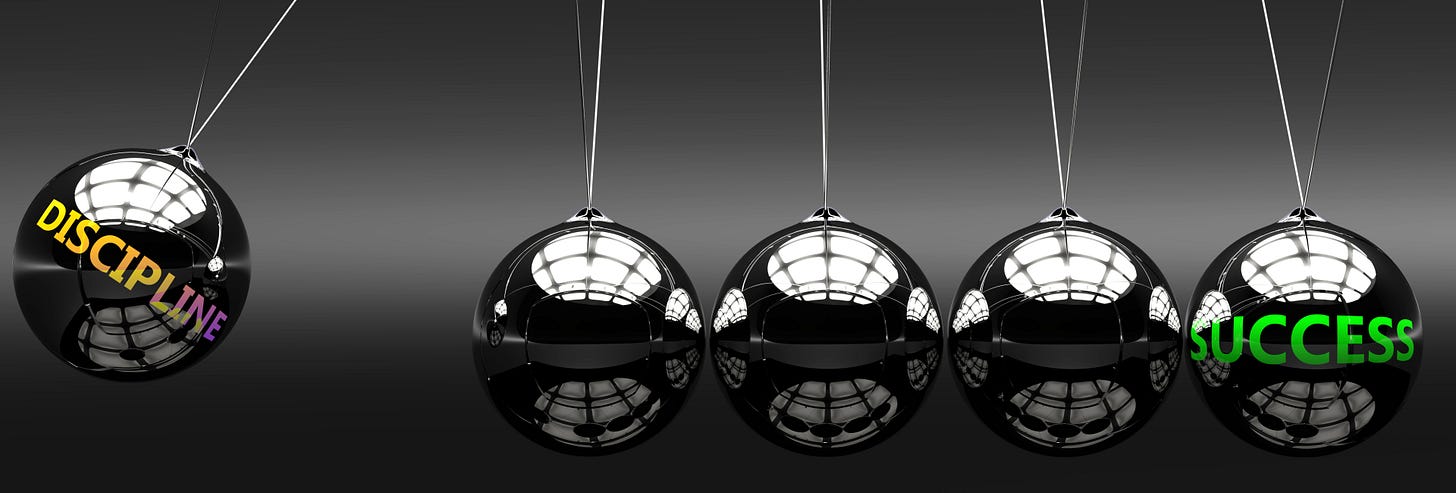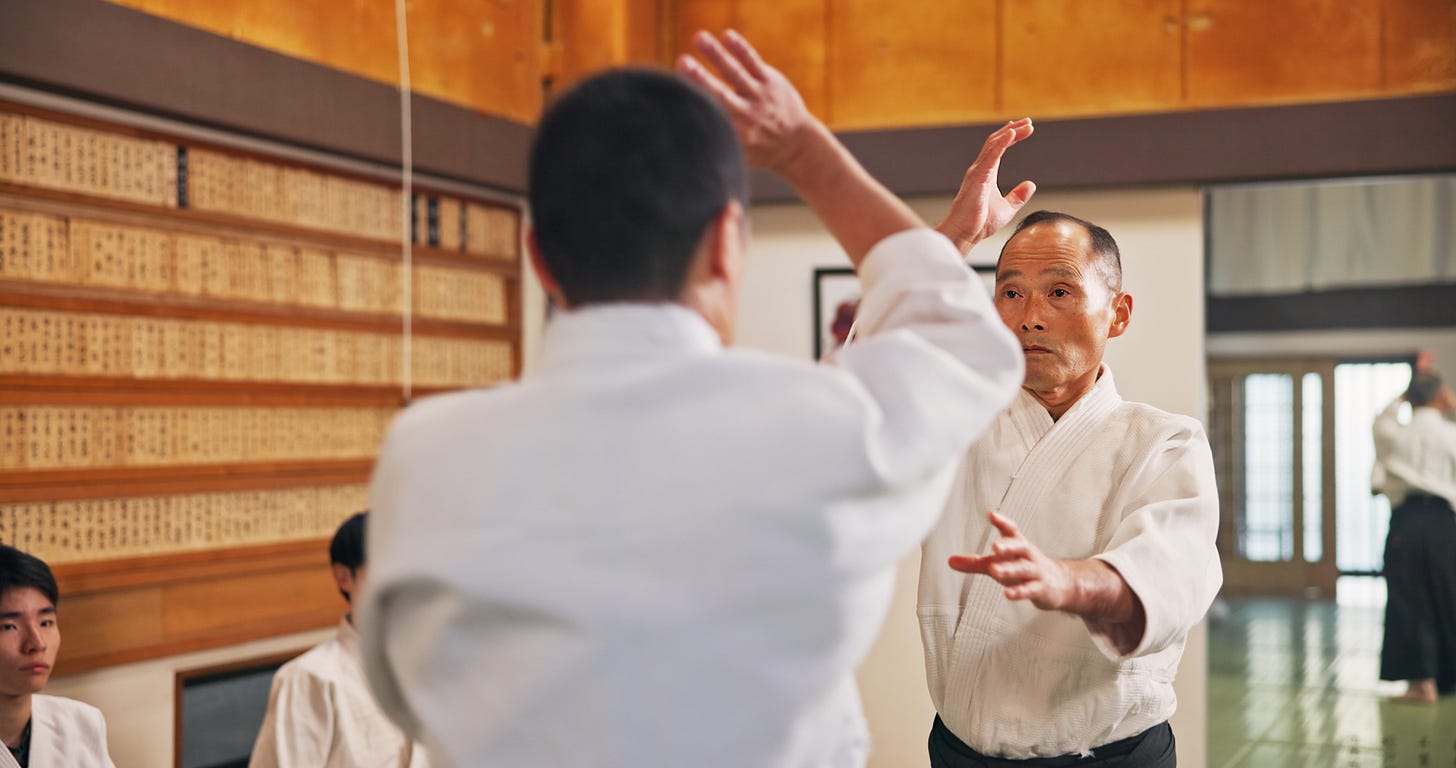When it comes to recovery, the journey is as much about discipline as it is about hope. And yes, the article I put together last week was about Jordan Peterson…I know, but I came across this video a few days ago, and as soon as I heard these words, I thought to myself “Yupp”, this will be Friday’s topic. Jordan Peterson stated that when,
"Improving your character, you're constraining the kinds of actions and perceptions that you have, that are going to make you sick of life, and work against it, because failure does that." He warns that neglecting this discipline is a formula for bitterness and loneliness—a life plagued by regret and dissatisfaction.
Let’s be honest—relapse is a failure, a moment where you gave in to your urges. But this isn’t meant to discourage you; in fact, quite the opposite. If you see relapse for what it truly is—a misstep on the path—you might be less likely to repeat it. As my mother always says, "As long as you’re alive, you have a chance." Recovery isn’t about avoiding failure entirely; it’s about acknowledging it, learning from it, and moving forward with renewed determination and purpose.
(Discipline sets everything in motion. Just like in this Newton's Cradle, one small act of consistency can lead to the success you’re striving for.)
The Power of Discipline and Sacrifice
Doing the hardest things in life—whether it’s starting treatment, sticking to recovery, or achieving any meaningful goal—requires discipline and sacrifice. It’s no secret that many addicts dread beginning treatment. They know deep down that the path to healing will demand effort, commitment, and facing parts of themselves they’ve long avoided.
However, once a person truly commits to treatment—attending meetings, engaging in therapy, and putting in the work (a.k.a. discipline)—something remarkable begins to happen in their recovery process. The key to sustaining discipline lies in setting clear, achievable goals, working towards them consistently, and repeating the process. According to a study on Goal Attainment Scaling (GAS), “patients in CBT often define personal treatment goals and experience significant progress, particularly in coping with problems and symptoms. As these therapies take effect, we witness profound shifts in patients' moods, perspectives, and overall outlook on life.”
And honestly, that makes perfect sense to me. Everyone has a deep-seated belief that they’re meant to fulfill a purpose in life. When that purpose becomes clear and is supported by well-defined goals, patients begin to realize that addiction is the only obstacle in their way, and declare a full-on war against it. Personally, I don’t believe there’s a more powerful motivator than this. Which is why, in my honest opinion, treatment plus these principles are the only way out.
(created with ChatGPT)
Addiction: The Patient, Cruel Mistress
Of the 48.5 million Americans who have battled substance abuse in the past year, two groups stand out: those visibly struggling and those who appear to be functioning well in society while silently battling addiction. High-functioning individuals often face unique challenges—their ability to maintain careers, relationships, or outward stability can mask the severity of their struggle, making it harder for them to seek help.
To those high achievers reading this: addiction is a cruel mistress, one that plays a very patient game. It lulls you into thinking you’re in control, only to strike when you’re least prepared. But no one is beyond recovery, and no matter how deep the struggle feels, help is available.
Whether you’re outwardly struggling or keeping up appearances, the fight against addiction requires a strategy, a plan, and a relentless sense of discipline. With the right support, recovery is not just possible—it’s within your reach.
Setting Goals for 2025: A Roadmap to Success
Recovery is about moving forward, and the best way to do that is by setting clear goals. For 2025, I encourage you to take a moment to reflect on what you truly want to achieve—not just in recovery but in all areas of your life.
To make this practical, here’s a simple prompt to guide you. Paste the following into ChatGPT, and let it help you create a tailored plan:
Prompt for Goal Setting:
"I want to create a list of personal goals for 2025. Please help me break these goals into smaller, actionable steps and suggest a schedule to achieve them. My goals are: [Insert your specific goals here, e.g., 'Stay sober for 365 days,' 'Rebuild relationships with my family,' 'Start a new hobby like painting or hiking,' 'Get in shape by exercising 3 times a week,' Start My Own Business,' etc.]. Please provide a detailed breakdown of what I need to do each day, week, month to stay on track. Ask me any questions to assure I get a tailored version. Gracias."
By setting clear goals and breaking them down into manageable steps, you’ll not only build discipline but also gain clarity on your purpose. Recovery isn’t just about avoiding relapse; it’s about creating a life so fulfilling that relapse doesn’t feel like an option.
(The Japanese are renowned for their discipline, rooted in centuries-old traditions of respect, perseverance, and self-mastery.)
In Closing
Discipline is the cornerstone of recovery. It’s what allows you to face life’s challenges, resist temptation, and rebuild a meaningful existence. As you look ahead to 2025, remember: every step forward counts. Create your goals, wage your war against addiction, and take pride in the person you’re becoming. Reach out if you want to share a few of your goals, would love to get in touch with people thinking positively about next year.
Trivia Question:
⛩️ How long does it typically take to achieve proficiency in Kenjutsu, the traditional art of Japanese swordsmanship? 🗡️ Approximately how many hours of practice are required to reach this level? 🤔
📧 Email your answer to david@asanarecovery.com for a chance to win a $25 gift card! 🎉 Choose from Amazon, Uber, or DoorDash. Only correct answers win! 🏆✨
Funny Meme:
This piece was a bit more serious, so here is a meme to lighten things up🙈
If this is happening to you, then you need treatment. Call us and make 2025 the year you finally beat addiction!










